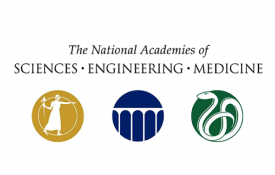-
Police Reports Are Biased. What Can Journalists Do To Better Cover Policing?
The way the Minneapolis Police first described George Floyd's murder — "Man Dies After Medical Incident During Police Interaction" — didn't mention that an officer held his knee on George Floyd's neck for more than nine minutes. It did mention that Floyd physically resisted officers, a detail which former officer Derek Chauvin's defense team leaned on during the murder trial — although Chauvin was ultimately found guilty. For decades, journalists have treated official police reports and statements as trusted primary sources. Now, some are questioning the reports' reliability and objectivity as part of a reckoning in the media spurred by George Floyd's murder.
-
Teens, Tech and Mental Health: Oxford Study Finds No Link
There remains "little association" between technology use and mental-health problems, a study of more than 430,000 10 to 15-year-olds suggests. The Oxford Internet Institute compared TV viewing, social-media and device use with feelings of depression, suicidal tendencies and behavioural problems. It found a small drop in association between depression and social-media use and TV viewing, from 1991 to 2019, There was a small rise in that between emotional issues and social-media use. Happy people "We couldn't tell the difference between social-media impact and mental health in 2010 and 2019," study co-author Prof Andrew Przybylski. said.
-

New Research in Psychological Science
A sample of research on the development of liking gaps, memory for similar events, personality traits and health, empathy bias, context and risky choice, forecasting of relationship support, gender stereotypes of sexual behavior, and happiness and social interactions.
-

New Research From Clinical Psychological Science
A sample of research on alcohol-facilitated aggression, burnout and depression, therapy components, and symptoms and models of psychopathology.
-

Disrupting the Impacts of Implicit Bias
The US National Academies includes APS Members, research in this important program.
-

NIH-Funded Opportunities to Address Application of Artificial Intelligence to Health
To propel the adoption and application of artificial intelligence (AI), the National Institutes of Health (NIH) is introducing the Bridge to Artificial Intelligence (Bridge2AI) program.

